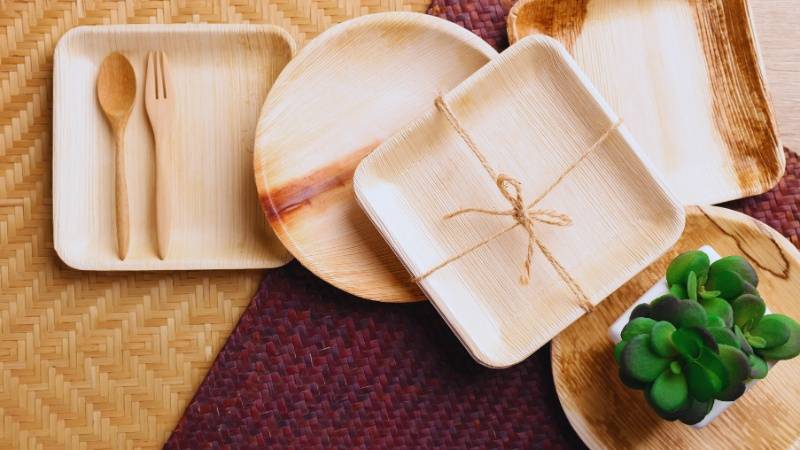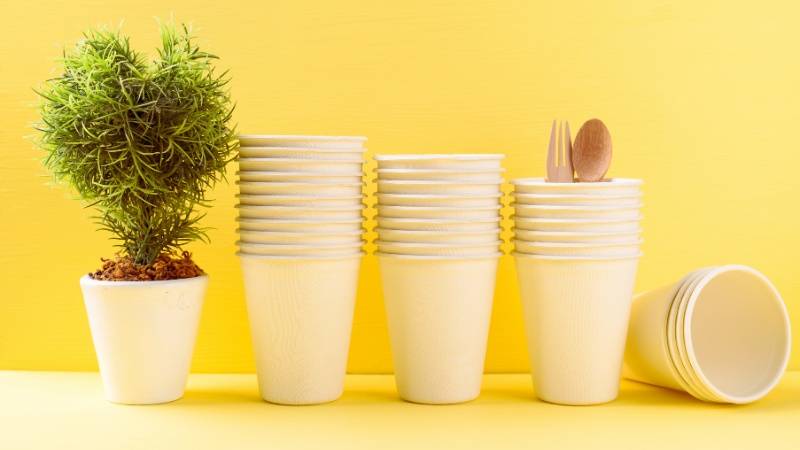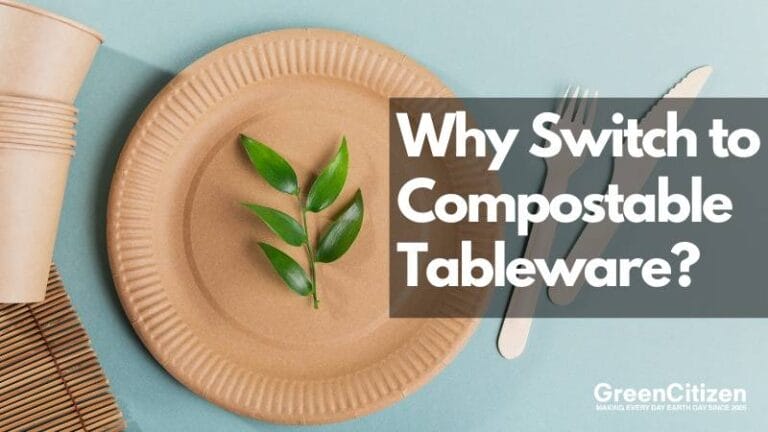Have you ever organized a house party only to feel overwhelmed by the amount of plastic accumulating in your trash can afterward? I know I have. It feels like a constant struggle between convenience and environmental responsibility.
Plastic waste is indeed one of the most pressing environmental issues we face today.
The amount of plastic tableware we use and throw away every day contributes significantly to this problem.
The Growing Problem of Plastic Waste
The problem of plastic waste is growing at an alarming rate.
According to the Environmental Protection Agency (EPA), single-use plastics, a major culprit in this issue, account for a large portion of the waste stream, leading to pollution and resource depletion. This trend extends to the food industry, where disposable plastic tableware adds significantly to the problem.
A report by the Ellen MacArthur Foundation reinforces this concern, revealing that by 2050, there could be more plastic in the oceans than fish by weight if we don’t change our habits.
However, the issue goes beyond just the waste itself. The production of traditional plastic tableware uses a lot of energy and resources. Fossil fuels are burned to create this plastic, and the manufacturing process often generates harmful pollutants.
But what if there was a better way?
What if you, I, and everyone else can enjoy a delicious meal with friends and family without the lingering guilt of plastic pollution? Imagine ditching the disposable plates that take centuries to decompose and opting for an alternative that’s kind to the environment and just as convenient.
Well, that alternative exists—and it’s called compostable tableware.
You may have already noticed a growing trend and increasing awareness of sustainable practices, such as eco-friendly dining. A key component of this movement is the introduction of compostable tableware.
How Compostable Tableware Makes a Difference

Before we dig into how these eco-friendly dining options make a difference, what is this compostable tableware and what is it made of that makes it a better choice? Simply put, it is disposable dining ware made from natural, compostable materials that can break down into nutrient-rich compost.
Compostable tableware is typically made from plant-based materials like corn starch, sugarcane, bamboo, and even wheat straw. These renewable resources offer significant environmental benefits compared to traditional plastic options. Firstly, compostable tableware boasts a lower carbon footprint due to its reliance on renewable sources.
Additionally, the production process itself requires less energy and generates fewer pollutants, minimizing its environmental impact.
Now, let’s get specific about the different types of compostable materials:
- Cornstarch: This readily available plant-based material is a popular choice for compostable tableware. It's known for its sturdiness and heat resistance, making it perfect for hot meals.
- Sugarcane: Another sustainable option, sugarcane-based tableware is often lightweight and biodegradable. It's a great choice for cold dishes or snacks.
- Bamboo: A naturally fast-growing and renewable resource, bamboo is a fantastic option for eco-friendly tableware. It's known for its durability and can be quite stylish.
- Wheat Straw: This abundant agricultural byproduct finds new life in compostable tableware. Wheat straw plates and bowls are often lightweight and can handle a variety of foods.
The Allure of Compostable Tableware
Sure, compostable tableware is good for the environment, but what about everyday use? Fun fact, compostable tableware has been around for a bit and they have come a long way.
These days, you can find a wide variety of options to suit any occasion. From elegant dinnerware sets for special events to sturdy plates and bowls for everyday use, there’s something for everyone. You can even find compostable cutlery made from bamboo or wood, ditching the plastic forks and knives altogether.
Yes, there are really nice cutlery sets made from wood, and trust me, they are just as effective as traditional options. I wouldn’t have believed it myself until I tried one.
My first encounter with a wooden fork was at the cafeteria where I worked a while back. All the cutlery had a noticeable wooden feel, making it clear they weren’t plastic. But my main concern was how well they’d handle cutting through something like chicken or bacon.
Long story short, the knife and fork worked perfectly and were surprisingly comfortable to use.
Here are some additional benefits of using compostable tableware:
- Durability: Don't be fooled by the "disposable" label. Many compostable tableware options are surprisingly sturdy and can handle most party fare.
- Heat Resistance: Some compostable plates and bowls can withstand hot and cold foods, making them versatile for different meals.
- Leakproof: Leakproof options are available, perfect for picnics or messy foods.
Tips for Embracing Compostable Tableware

Think you are ready to make that switch to compostable tableware? If your answer is yes, then here are a few tips to get you started:
Look For the Label
Not all disposable tableware is created equal. Make sure the plates, cups, and cutlery you choose are certified compostable. Look for labels like “ASTM D6400” or “BPI Compostable.“
These certifications ensure the tableware will break down completely in a compost pile.
Find Your Perfect Fit
There’s a wide variety of compostable tableware available. Consider what you’ll be using it for, and choose the thickness and style that best suits your needs. For example, if you’re planning a fancy dinner party, you might opt for a more elegant compostable dinnerware set made from bamboo.
For picnics or barbecues, sturdy plates and bowls made from corn starch or wheat straw might be a better choice.
Compost Awareness
Remember, compostable tableware needs to be composted properly to break down completely.
Check with your local waste disposal service to see if they offer compostable food waste collection. If not, you might explore backyard composting options!
How Compostable Tableware Supports Sustainability
Reduced Landfill Waste: By choosing compostable options, you’re diverting waste from landfills, where traditional plastic tableware can take centuries to decompose.
Lower Carbon Footprint: The production of compostable tableware typically requires less energy and resources compared to plastic, resulting in a lower carbon footprint.
Healthier Soil: Composted food scraps and compostable tableware break down into nutrient-rich organic matter, which can be used to fertilize soil and promote plant growth.
Encourages Responsible Consumption: Choosing compostable tableware is a conscious decision to minimize environmental impact. It encourages us to think about the life cycle of the products we use and to make choices that promote responsible consumption.
Innovation in Sustainable Materials: The rise of compostable tableware has driven innovation in sustainable materials. Manufacturers are constantly exploring new ways to create sturdy, functional, and eco-friendly products.
Wrapping Up
Let’s face it, convenience is important. But what if convenience could go hand-in-hand with environmental responsibility? Compostable tableware is a shining example that you don’t have to sacrifice ease to make a positive impact.
So, the next time you’re planning a party, a picnic, or even just a casual dinner at home, consider making the switch to compostable tableware. It’s a small change that can make a big difference for our planet.
Plus, you might be surprised by how stylish and functional these eco-friendly options can be!

